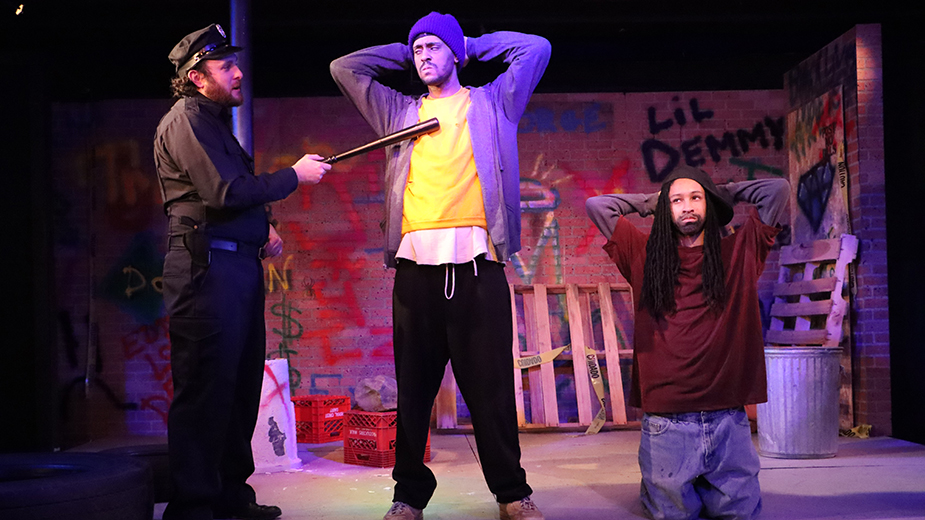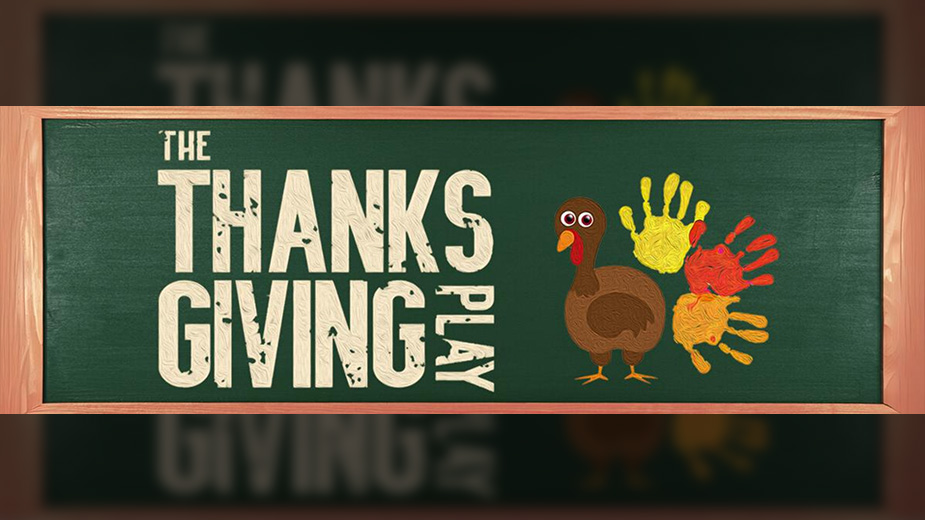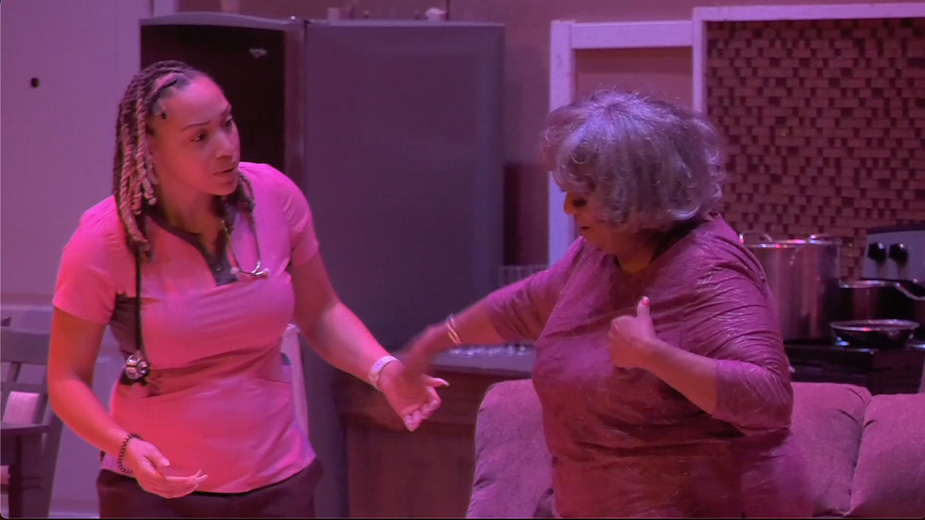‘Pass Over’ Is Gritty and Biting at Playhouse
By J.E.Ballantyne Jr.
YOUNGSTOWN, Ohio – The corner of MLK Boulevard and E. Wood Street represents bleak ghetto areas in many communities across the country. Kitch lives here. No, not in a house or apartment but literally on the street; right under the defining street sign. The audience “meets” Kitch upon their entrance into the theater for Antoinette Chinonye Nwandu’s play, “Pass Over.” He roams the corner and the audience more or less feels as though they are “Passing Over” that part of town.
But Kitch does not live here alone. As the play begins, with the unlikely background of Alfred Drake singing “Oh, What a Beautiful Mornin’” from “Oklahoma,” Moses emerges from an unlikely part of the corner after a night’s sleep on the concrete. Bright eyed in the early morning and announcing he’s ready to be “all he can be,” the audience is thrown into the mayhem that is the lives of these two Black characters.
Kitch, played by Jibril Jackson, is kind of a flighty good-tempered individual who seems to have accepted the inevitable fact that his life will never grow beyond this dismal graffiti brick wall that serves as his “window on the world.” Moses, on the other hand, played by Bobby Brown, has a forever burning need to get out of this situation and into a better life.
The two fantasize about food, women and a life far beyond what they will ever see. Kitch, forever the realist, always knocks Moses back to reality with “where are you gonna go” whenever Moses thinks of getting out.
Jackson gives a great performance as Kitch. The program states that Jackson is a 10th grade student at Cardinal Mooney High School but the performance he turns in belies his age and comes off as a much older and polished actor. The wit that he injects into Kitch gives the character dimension and Jackson takes every opportunity to flesh Kitch out into a multi-faceted individual. As great as his comedic moments are, he can turn the tables easily to a more dramatic moment.
With Moses being the more serious of the two, and seemingly, the older of the two, these two actors play off of each other extraordinarily well. I’m not sure if Nwandu wrote the characters with any sort of age difference but it plays well in this production.
Brown gives Moses a powerful presence. From his first appearance, Moses is the hope and the driving force to get off of this corner and move up in life. But at the same time, Moses conveys the hopelessness that each character feels as the play reveals what their lives are like, not only on this one day, but every day. The scene when Moses and Kitch envision a finer existence including genteel language and overly-polite gestures, is a real example of the range and abilities of these two actors.
Both Brown and Jackson sell their characters so well that it feels like we are eavesdropping on a real situation rather than a theatrical event. Their lives are hard. Their lives are dangerous and their longing to change that cycle is felt when watching their performances.
Paul Dahman plays Mister/Ossifer and offers a change of course for the play on his initial entrance. Bedecked in a light colored suit complete with a vest and pocket watch and fedora, Mister carries a basket of food on his way to Mother’s house. Reminiscent of Little Red Riding Hood, don’t be too sure where the wolf comes in. Dahman presents a wide-eyed, almost Gomer Pyle like character for Mister. His light approach in Act I provides some needed comedy relief amongst the agony of street life. Dahman shows his versatility well as the show moves along.
The police presence in the lives of Moses and Kitch is certainly played out in many scenes. In fact, they are pretty much portrayed as evil and sadistic executioners who will gun down a Black man just because he’s Black. But in the context of this play, that is the reality of how Moses and Kitch perceive any law enforcement officer.
The show does have its downside, however. The dialogue is fast and rapid fire in many places. Many times the lines are so fast that they were totally garbled and made them difficult to understand. This was usually at a very dramatic moment, which left the audience hanging as far as what was just said.
Also, I certainly understand the style and content of the subject matter but it sometimes seemed like Nwandu wanted to see how many times she could use the “N” and “F” words crammed into a 90 minute show. Many times, less is more.
Director Dr. Lundeana M. Thomas has put a very powerful and thought provoking piece on the Playhouse Moyer Room stage. Her approach puts it right in the face of the audience and it does not let up until the final lights fade out at the end.
Scenic design by Thomas Copeland is stark and is very representational of many ghetto areas in any number of cities. Johnny Pecano did well to supplement Copeland’s set with imaginative and realistic props, which create functionality to the entire piece. Leslie Brown’s lighting design does more than just provide “daylight” to the corner of MLK and E. Wood streets. Effects are well designed and managed.
Emelia Sherin’s costumes are realistic and integrate well with the other set elements.
“Pass Over” can have many meanings in this show. From the obvious of getting out of their situation to a better life to many other more complex references throughout, if you are looking for hard-hitting drama with a bite, don’t pass over this show.
CAUTION: ADULT SITUATIONS AND LANGUAGE
“Pass Over” will continue April 15, 21, 22 at 7:30 p.m.; April 16, 23 at 2:30 p.m.
Pictured at top: Paul Dahman, Bobby Brown and Jibril Jackson in a scene from The Youngstown Playhouse’s production of “Pass Over.”
Copyright 2024 The Business Journal, Youngstown, Ohio.


